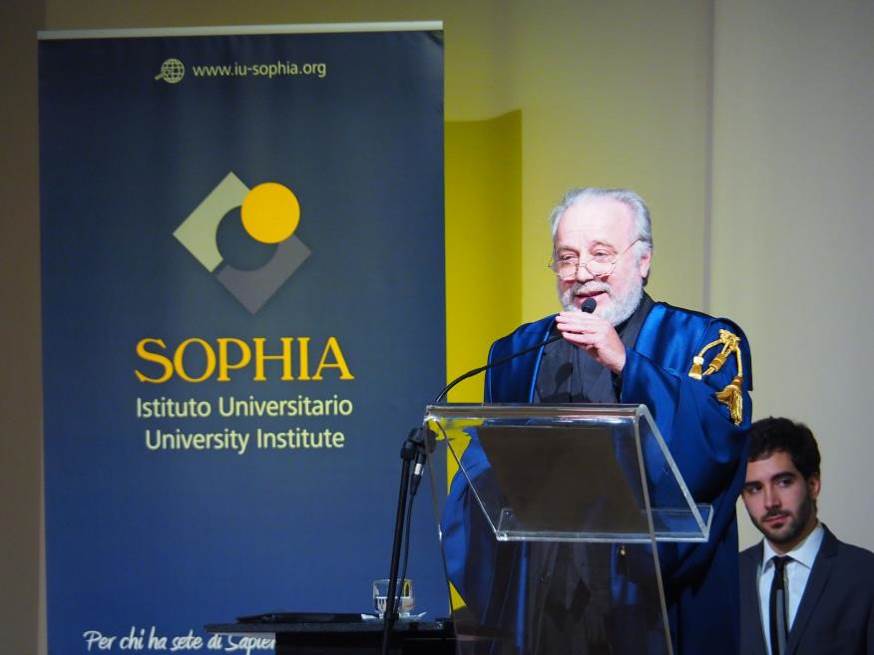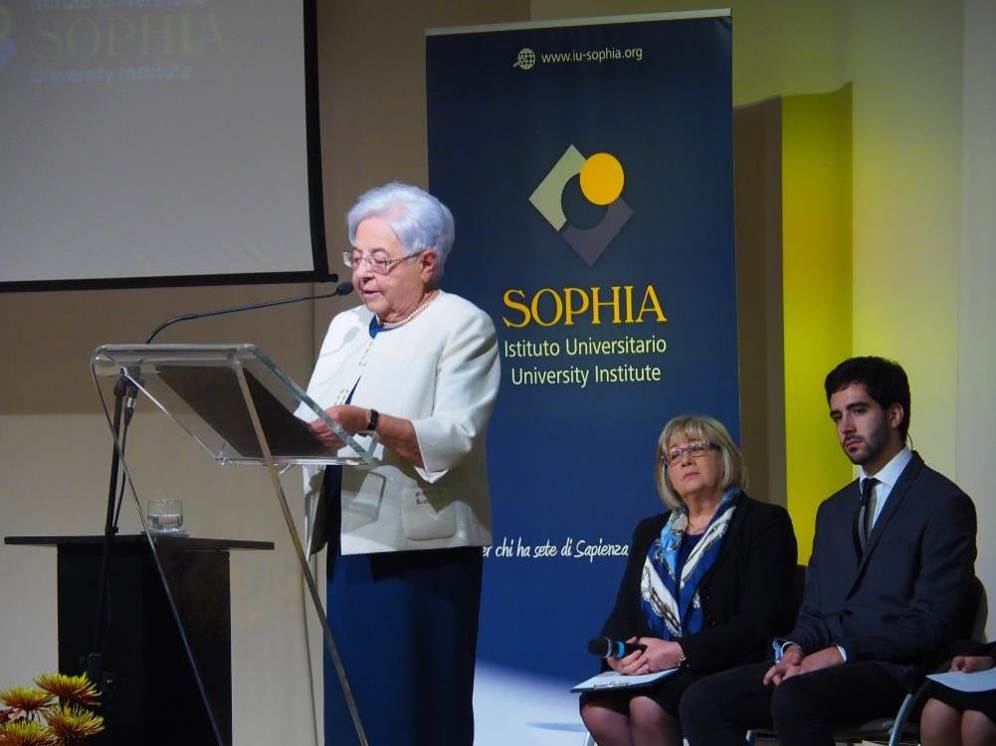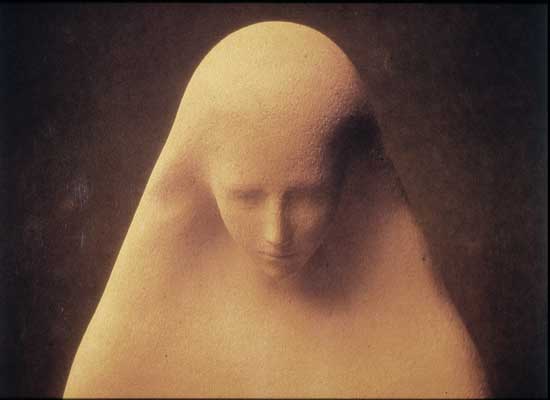

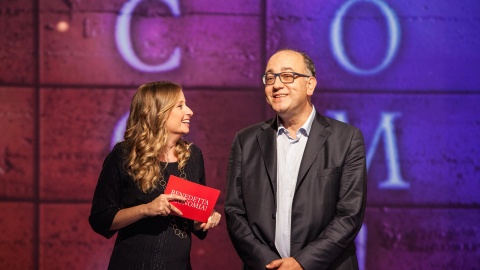
Blessed Economy!
 What connections can there be among the Bible and work, business, finance? Beginning tomorrow, an eight part series on Tv2000 with Luigino Bruni, focolarino, economist and passionate Bible enthusiast, instructor at Lumsa University in Rome, Italy, and Sophia University Institute in Loppiano, Italy. He will discuss with political world figures, labour union members and with workers, managers, business people who will present their testimonies of an economy oriented towards the human person. Based on the Economy of Communion, which considers as actors in the economy all those people that are not content with just turning a profit or themselves, but are open to the needs of the poorer folks, involving business owners, leaders and workers, students and ordinary citizens in the application of an economic culture that is marked by communion and reciprocity. In each episode a new connection will be made between a Bible passage and an aspect of the economy. The series will offer an opportunity to reflect on the original reasons, but also the current reasons for the inequity in the social fabric: insecurity, speculative logic, injustice, market intrusion in the public sphere and insecurity. There will also be business people and workers in the studio and via satellite to focus attention on small and medium-sized companies that have already exprienced success combining justice and market, profit and the common good, employment and solidarity. Beginning from the account of the Israelites in Egypt, found in the Book of Exodus, it considers the defence of workers rights. The second episode is an economic reading of the parable of the Prodigal Son and a comparison of themes of mercy and forgiveness with stories of business owners who have founded their business on a model of acceptance and sharing. A passage from Isaiah will raise a discussion in the episode dedicated to the “sacrificial model” adopted by many career managers, and by others that have been refuted in favour of free choice. A review of the story of Job, who falls into ruin and believes he is guilty, will be used to reflect on the hidden risks of the cult of merit. A page from the book of Jeremiah dedicated to false idols, will analyze the some of the motives that push many men and women of today into buying and consumerism on holy days, succumbing to the logic of the market square. Poverty and wealth will be themes of the sixth episode, in which the provocation of the Beatitudes will be confronted with the tendency to hide the value and meaning of poverty, sobriety and acceptance. The reading of the story of the Tower of Babel, mother of all failed businesses, will help to understand the errors that still today can lead a business into failure or towards mistaken ethical and social choices, and to discuss the social and economic consequences of organized crime. Finally, in the last episode, the reading of the story of Noah’s Ark will provide the opportunity to reflect on the “builders of arks of hope” that are still present in our day, with several stories of people that were able to veer in a different direction after very negative expriences, towards a more positive future for themselves and others.
What connections can there be among the Bible and work, business, finance? Beginning tomorrow, an eight part series on Tv2000 with Luigino Bruni, focolarino, economist and passionate Bible enthusiast, instructor at Lumsa University in Rome, Italy, and Sophia University Institute in Loppiano, Italy. He will discuss with political world figures, labour union members and with workers, managers, business people who will present their testimonies of an economy oriented towards the human person. Based on the Economy of Communion, which considers as actors in the economy all those people that are not content with just turning a profit or themselves, but are open to the needs of the poorer folks, involving business owners, leaders and workers, students and ordinary citizens in the application of an economic culture that is marked by communion and reciprocity. In each episode a new connection will be made between a Bible passage and an aspect of the economy. The series will offer an opportunity to reflect on the original reasons, but also the current reasons for the inequity in the social fabric: insecurity, speculative logic, injustice, market intrusion in the public sphere and insecurity. There will also be business people and workers in the studio and via satellite to focus attention on small and medium-sized companies that have already exprienced success combining justice and market, profit and the common good, employment and solidarity. Beginning from the account of the Israelites in Egypt, found in the Book of Exodus, it considers the defence of workers rights. The second episode is an economic reading of the parable of the Prodigal Son and a comparison of themes of mercy and forgiveness with stories of business owners who have founded their business on a model of acceptance and sharing. A passage from Isaiah will raise a discussion in the episode dedicated to the “sacrificial model” adopted by many career managers, and by others that have been refuted in favour of free choice. A review of the story of Job, who falls into ruin and believes he is guilty, will be used to reflect on the hidden risks of the cult of merit. A page from the book of Jeremiah dedicated to false idols, will analyze the some of the motives that push many men and women of today into buying and consumerism on holy days, succumbing to the logic of the market square. Poverty and wealth will be themes of the sixth episode, in which the provocation of the Beatitudes will be confronted with the tendency to hide the value and meaning of poverty, sobriety and acceptance. The reading of the story of the Tower of Babel, mother of all failed businesses, will help to understand the errors that still today can lead a business into failure or towards mistaken ethical and social choices, and to discuss the social and economic consequences of organized crime. Finally, in the last episode, the reading of the story of Noah’s Ark will provide the opportunity to reflect on the “builders of arks of hope” that are still present in our day, with several stories of people that were able to veer in a different direction after very negative expriences, towards a more positive future for themselves and others.
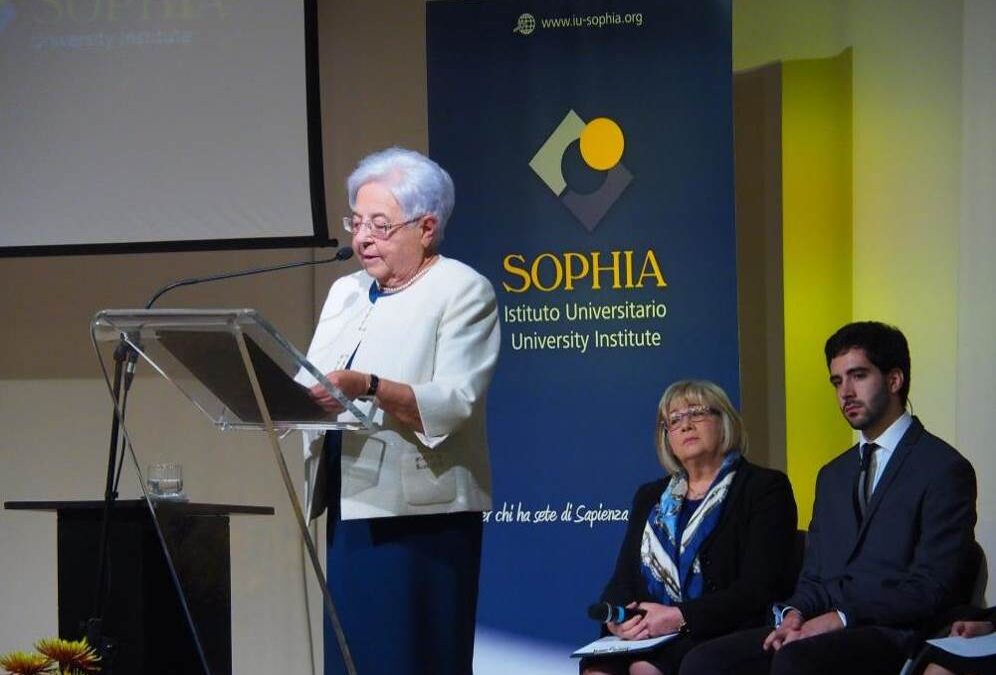
Knowledge is the path and the answer.
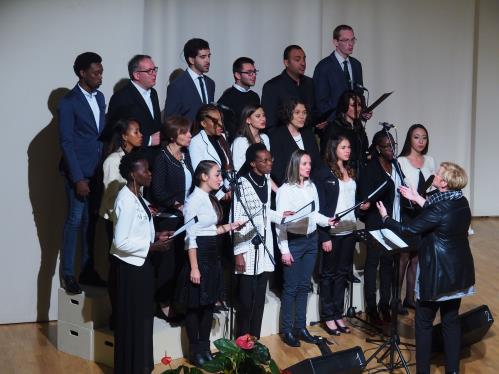 As processes of isolation increase around the world, Sophia University Institute opens a courageous new Centre for Global Studies which will “provide tools for understanding, managing and changing processes of global relations,” explained Pasquale Ferrara, Italian Ambassador to Algeria and president of the new Centre. “The new centre is the result of ten years of academic experience, and its goal is the training of a new generation of leaders that is capable of facing the complexity, and motivated to work for dialogue and peace.” “No country, no group can allow itself to become isolated from the other,” said Paolo Frizzi, professor of Religions and Global Processes, and Director of the Centre. “We are in the middle of an uncertain passage, which is transient and happening on many levels.
As processes of isolation increase around the world, Sophia University Institute opens a courageous new Centre for Global Studies which will “provide tools for understanding, managing and changing processes of global relations,” explained Pasquale Ferrara, Italian Ambassador to Algeria and president of the new Centre. “The new centre is the result of ten years of academic experience, and its goal is the training of a new generation of leaders that is capable of facing the complexity, and motivated to work for dialogue and peace.” “No country, no group can allow itself to become isolated from the other,” said Paolo Frizzi, professor of Religions and Global Processes, and Director of the Centre. “We are in the middle of an uncertain passage, which is transient and happening on many levels. 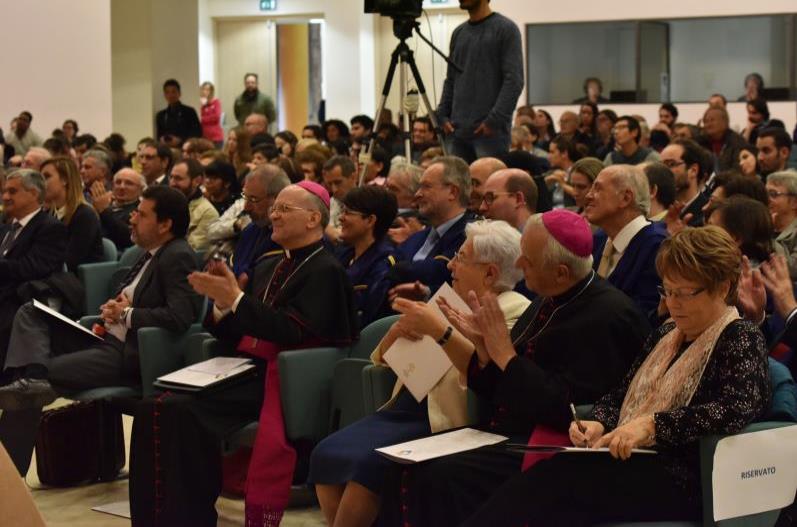 Sophia Institute, the result of Chiara Lubich’s intuition, has tripled its offerings this year: Master Degree in Economics and Management, Trinitarian Ontology and Culture of Unity, with their respective doctorates. President Msgr Piero Coda explains: “The complex nature of the national and global horizon requires a relentless effort oriented towards the unity of the human family guided by a new thought. In these ten years, Sophia has grown into an Intercultural, inter and trans-disciplinary centre where an integral relationship is nurtured among study, experience and research.”
Sophia Institute, the result of Chiara Lubich’s intuition, has tripled its offerings this year: Master Degree in Economics and Management, Trinitarian Ontology and Culture of Unity, with their respective doctorates. President Msgr Piero Coda explains: “The complex nature of the national and global horizon requires a relentless effort oriented towards the unity of the human family guided by a new thought. In these ten years, Sophia has grown into an Intercultural, inter and trans-disciplinary centre where an integral relationship is nurtured among study, experience and research.”
Meeting of “Friends” of Together for Europe 2017 in Vienna
Together for Europe (TfE) is an initiative of over 300 Christian Movements and Communities belonging to different Churches in Europe. The Steering Committee which is entrusted with a coordination role is composed of the following members: Christophe D’Aloisio (Fraternité orthodoxe en Europe occidentale), Marco Impagliazzo (Community of Sant’Egidio), Michelle Moran (ICCRS / Sion Community), Gerhard Pross (CVJM/YMCA Esslingen), Thomas Roemer (CVJM/YMCA Munich), Gérard Testard (Efesia), Maria Voce (Focolare Movement) and Fr. Heinrich Walter (Schoenstatt). In 2017, the “Friends” of TfE network will hold their annual conference in Vienna, a city that is a bridge connecting Eastern and Western Europe. A total of 120 participants from around 20 Eastern and Western European countries and 40 Movements are expected to attend. Their main aim will be to pool ideas on three topics:
- What culture is generated by the history of Together for Europe?
- What is our specific contribution to Europe?
- Dialogue between East and West: a mutual enrichment
This network of people embraces all of Europe from England to Russia, from Portugal to Greece. Their shared mission: through the upcoming meeting, to strengthen communion among their individual charisms and build united and multifaceted Europe, with strong social cohesion and cultural diversity. The meeting will open, on 9th November 2017, in the Stephansdom Cathedral of Vienna, with an Ecumenical prayer for Europe. All those who wish for peace in Europe and in the world, are invited to take part in this moment of prayer. Cardinal Christoph Schoenborn, Archbishop of Vienna, Auxiliary Bishop Emeritus Helmuth Kraetzl, Catholic Church, Archpriest Vicar Ivan Petkin, Bulgarian Orthodox Church in Austria, Chorbishop Emanuel Aydin, Syrian Orthodox Church in Austria, Patriarchal Delegate Tiran Petrosyan, Armenian Apostolic Church, Patrick Curran, Archdeacon of the Eastern Archdeaconry of the Anglican Church in Europe, together with all the present will bring before God needs and opportunities of our continent. The intention of the prayer is extremely timely: unity in diversity, peace in justice. Following personalities will address the gathering: Thomas Hennefeld, Superintendent of the Reformed Church of Austria and President of the Ecumenical Council of Churches in Austria, and Joerg Wojahn, Head of the European Commission Representation in Austria. For further information on Together for Europe
Architecture to the extremes
A group of young Columbian architects of the “De La Salle” University of Bogotà and Italians of “G. D’Annunzio” University of Pescara are undertaking a new stage of the traveling workshop, “Habitandando,” organized by the network of the Focolare Movement Dialogue in Architecture. From 24 to 28 October there will be a trip from Bogotà into the interior of the country, with stopovers in some colonial towns and the Amazon plains. From 30 October to 5 November a week of study-work will follow in the Altos de Cazuca district in the outskirts of Bogotà. This is a depressed area, lacking in primary infrastructure and renowned also for security-related problems. The objective is to design and experiment through creative projects and teamwork, architectonic and urban solutions aimed at generating change and creating spaces for the local community. This will be an extreme context at the limit of the resources, technological possibilities, and social and cultural environmental sustainability.

